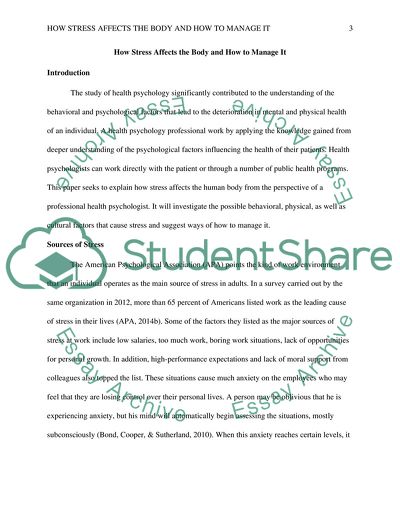Cite this document
(How Stress Affects the Body and How to Manage It Coursework Example | Topics and Well Written Essays - 2750 words, n.d.)
How Stress Affects the Body and How to Manage It Coursework Example | Topics and Well Written Essays - 2750 words. https://studentshare.org/health-sciences-medicine/1866783-health-psychology-how-stress-effects-the-body-and-how-to-manage-it
How Stress Affects the Body and How to Manage It Coursework Example | Topics and Well Written Essays - 2750 words. https://studentshare.org/health-sciences-medicine/1866783-health-psychology-how-stress-effects-the-body-and-how-to-manage-it
(How Stress Affects the Body and How to Manage It Coursework Example | Topics and Well Written Essays - 2750 Words)
How Stress Affects the Body and How to Manage It Coursework Example | Topics and Well Written Essays - 2750 Words. https://studentshare.org/health-sciences-medicine/1866783-health-psychology-how-stress-effects-the-body-and-how-to-manage-it.
How Stress Affects the Body and How to Manage It Coursework Example | Topics and Well Written Essays - 2750 Words. https://studentshare.org/health-sciences-medicine/1866783-health-psychology-how-stress-effects-the-body-and-how-to-manage-it.
“How Stress Affects the Body and How to Manage It Coursework Example | Topics and Well Written Essays - 2750 Words”. https://studentshare.org/health-sciences-medicine/1866783-health-psychology-how-stress-effects-the-body-and-how-to-manage-it.


